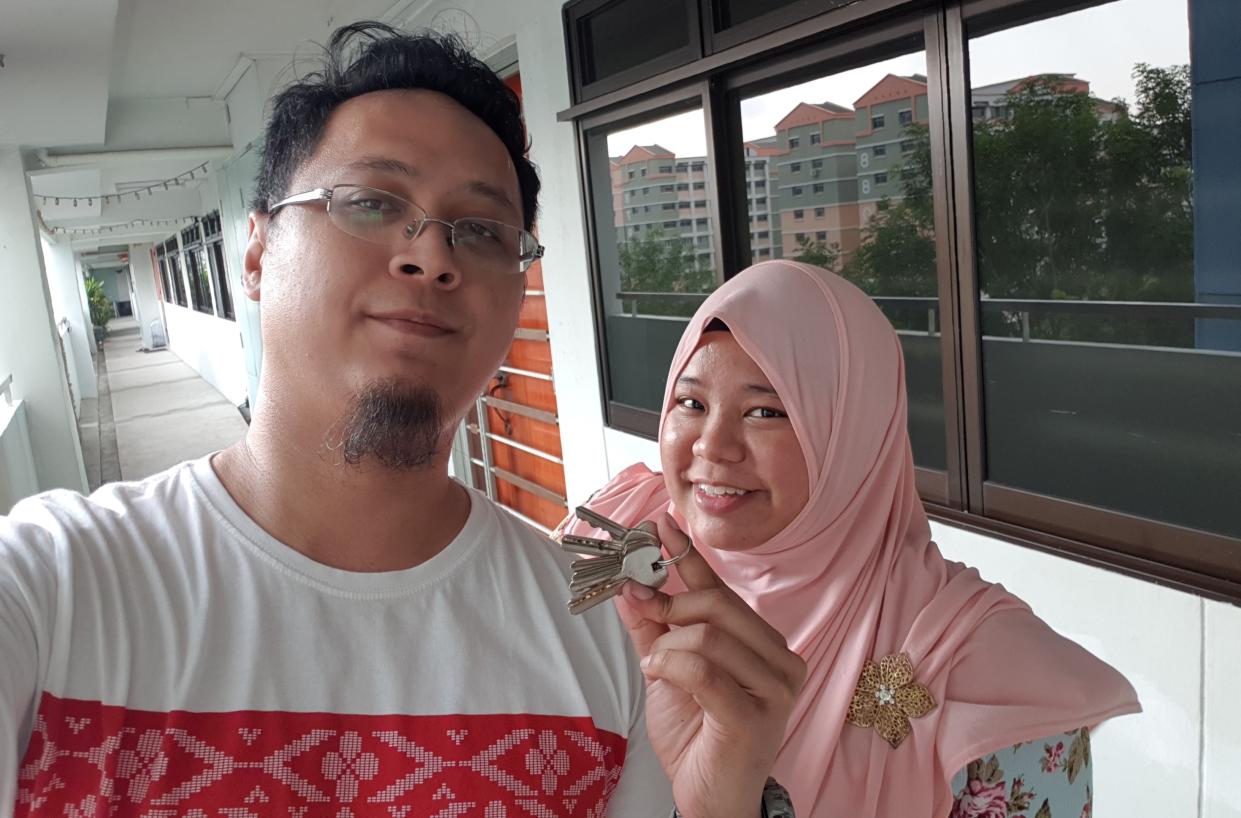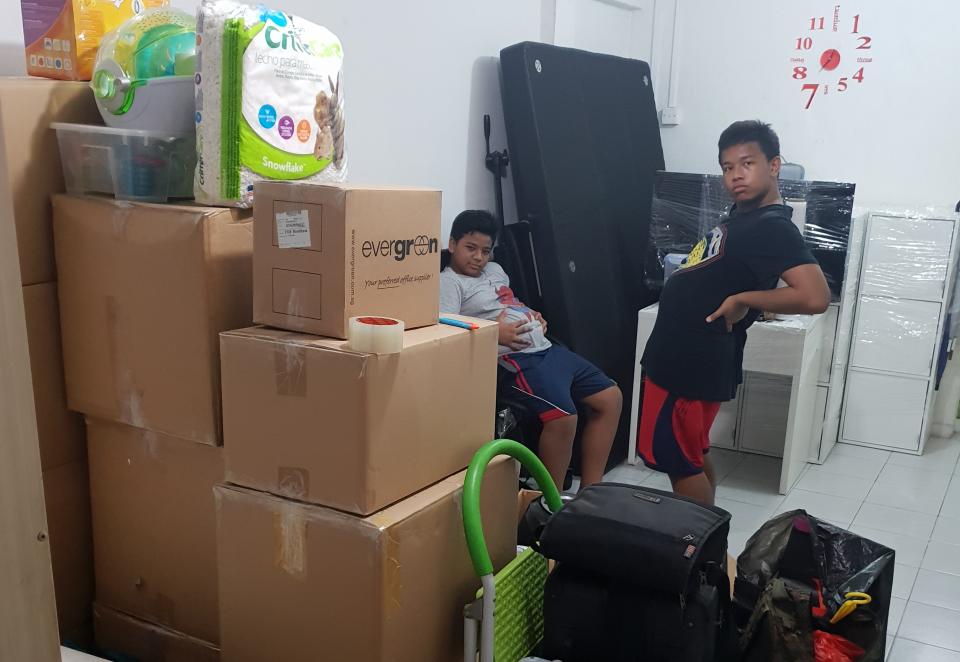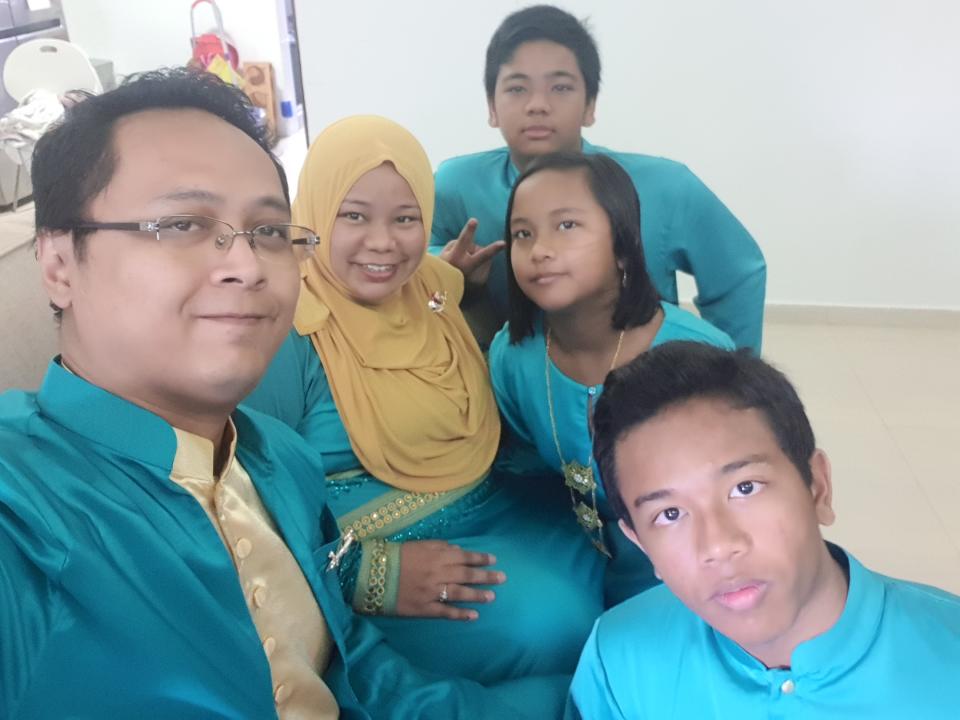Life's a beach: Entrepreneur writes book on surviving homelessness in Sembawang Park

SINGAPORE — For three months of her life in 2009, Liyana Dhamirah Selamat lived out of a small blue tent at Sembawang Park.
Fast forward a decade later, the 32-year-old is now a founder of her administrative services start-up Virtual Assistants Singapore and a soon-to-be published author.
Her memoir - titled Homeless: The Untold Story of a Mother’s Struggle in “Crazy Rich” Singapore - is set to hit bookstores in August.
The book, co-written with two friends, is a tribute to her “unconventional path” in life and, more importantly, a source of guidance for those in similar predicaments, said Liyana in a candid chat with Yahoo News Singapore at her Housing Development Board (HDB) flat in Woodlands.
“(I) did not take the usual traditional pathway that normal Singaporeans do, but it was still something that lead (me to) somewhere,” she added.
The book nearly did not come to fruition. The first draft was written over a period of six months in 2013, but was eventually set aside after a crowdfunding campaign to raise funds for publication failed.
At the same time, busy with her start-up, the young mother of three shelved the manuscript.
The idea of publishing the book re-surfaced a few years later when a friend - who eventually became one of her co-authors - asked her about the fate of the story.
Curious to find out if similar stories have been written about being homeless in Singapore, Liyana scoured bookstores and libraries only to find books on the subject that had been written from a Westerner’s point of view.
“There was nothing that is local, in terms of issues that I faced back in 2009 when I was homeless - like tips or references on challenges and what to do when they are in this kind of sh*t - pardon my language,” she said.
“I felt that for a lot of people in Singapore, we tend to sweep issues under the rug or be closed off to such issues, because of embarrassment and its taboo nature.”
Last year, armed with revived vigour, Liyana and her two co-authors worked on refining the five-year-old project before reaching out to 20 publishers and literary agents.
Good news eventually came a few months later in the form of a contract with local independent publisher Epigram, signed on 18 February, just a day after her birthday this year.

Rocky start
Liyana’s woes began in 2009, when her parents, whom she and her family had been living with since she got married at 16, were facing financial difficulties and decided to relocate from Woodlands to Johor Bahru.
Initially, the then 22-year-old - and her family - shuttled between Johor and Singapore, where she worked as a senior retail associate at Swarovski Singapore.
After less than two months, her then-husband issued an ultimatum: move back to Singapore where her in-laws were staying, or else their marriage was over.
To avoid putting extra strain on an already fractured marriage, Liyana decided to move in with her in-laws and quit her $3,000+ paying job to focus on mending her relationship with her then-husband.
But the couple was unceremoniously kicked out of the flat within a month on the morning of Hari Raya, 27 September 2009. Their belongings - clothes, bags, a borrowed camping tent - were scattered outside in the public corridor.
“To be honest, even now I don't know why she kicked me out or why she didn’t fancy me any one bit, although I tried to win her heart,” quipped Liyana matter-of-factly.
To make matters worse, she had planned to tell her in-laws on the fateful day that she was pregnant with her third child, a girl.
Left with a month’s worth of savings, the couple gathered their belongings, stuffed them into a cheap plastic throwaway bag and made their way down to Sembawang Park. It would be a “short-term camping session”, Liyana thought.
She left her two young boys, then aged six and four, under her mother’s care in Johor Bahru, after explaining about her plight.
For the next three months, she was to call the borrowed tent - just big enough for four adults - home.

Live by her wits
For the first few weeks, Liyana tried blending into the holiday crowd, to hide her status, thinking she was the only one there seeking short-term refuge. She soon found out she was not.
“Because it was festive season and there were families camping - but after it ended, there were families still around!” she laughed.
The eight families, a group comprising about 25 people, shared similar circumstances. One family had a two-year-old toddler; others had teenagers who dropped out of school; another had a sick family member with a colostomy bag.
Like Liyana, some had fallen out with family members whom they were reliant on for housing. Others were too poor to afford rent, but assessed to be ineligible for aid.
But her experience was not all doom and gloom. “Honestly, it was quite fun - it’s something you can’t quite picture - but because there was a community of families, it was like a makeshift ‘kampung’,” she quipped.
“I also learned new survival skills: Sembawang Park’s beach got the lush kind of greenery right? That was the first time I went to dig for tapioca near the Masjid Petempatan Melayu mosque at Kampong Wak Hassan,” Liyana laughed.
Then there was “ambience” when the weather was clear.
“In Singapore where can you get, unless you live in a bungalow in front of the sea or go to a resort outside of Singapore? For us, we open the tent’s zip, there’s the sea already,” she added half-jokingly.
In the morning, the group would do their laundry and freshen up in the public toilets, and afterwards, forage for food (“for the first time, I learnt about different plant names”).
In the afternoons, while her then-husband took on different jobs earning about $1,000 per month, Liyana would try and seek help from social workers or attend meet the Member of Parliament (MP) sessions.
As the makeshift family’s “chief cook”, she would used food items pooled together to cook dinner using first, a public BBQ pit, and later, a charcoal stove left by a park visitor.
These would include chicken or packets of rice bought from the nearby Sun Plaza by those returning from work.
The families also relied on each other to renew the seven-day camping permit. An NRIC can only be used to book at most seven days and an applicant can only do so once a month. Hence, they had to use four identity cards to book their spot for a month.
But even the self-professed sociable person admitted there were challenging moments where she felt hapless about her situation.
“To be honest, it was at one point in time on 13 November, 2009, when I went to the main headquarters of Ministry of Community Development, Youth and Sports (now Ministry of Social and Family Development or MSF) on Upper Thomson Hill,” said Liyana.
“I was seven months pregnant, and had to walk up the hill to find a social worker to get help but nothing happened. Thereafter, I slept in the tent for two weeks - I was in no mood and did not want to go out (or do anything).”
Acting on a tip-off by the park’s cleaner, the families also once had to scurry away after midnight in a lorry, owned by a friend of one of the families, in a bid to relocate to West Coast Park - all to avoid being fined for overstaying by NParks officers.
“The weather was crazy there, it was drizzling every single day. About one month later, after the coast is clear, we moved back to Sembawang Park,” said Liyana.

Homelessness in Singapore still an issue
Liyana’s luck took a positive turn when journalists chanced upon her and her children at Sembawang Park and covered her story. Her boys had joined her and their father in their final month of “camping” in the wild.
On 1 January, 2010, she and her family moved to a shelter under New Hope Community Services. After moving from shelter to shelter for a-year-and-a-half, the family settled into a two-room rental flat at Lengkok Bahru where they called home for the next seven years.
Liyana also filed for divorce from her then-husband, who no longer keeps in contact with the family, with proceedings finalised in 2014. She re-married in 2017.
In September last year, she and her husband, Muhammad Faizal Sugi, 36, moved into a four-room resale HDB flat of their own in Woodlands.
As her life turned for the better, she began to help others, accompanying needy families to meet with social workers.
“I never knew there were other people facing similar challenges in Singapore before I was homeless. I never knew there was so many processes to go and get help,” said Liyana.
But even 10 years after she first experienced sleeping rough, a lot of work still needs to be done in Singapore for the homeless, she noted.
“(Now), families in need may still wait up to two months to get help - be it financial and other forms of social assistance and the forms of aid may be too generic and not necessarily fit their needs,” Liyana added.
An average 290 individuals who were homeless, destitute or sleeping in public places received assistance from the MSF for each year between 2016 and 2018.

Coming full circle
She has kept in touch with at least two families she befriended at Sembawang Park, both of whom now have their own HDB flats as well.
“I also kaypoh (Singlish for busybody) and went back to check the park. It’s changed a lot now - now they have electrical pits and people cannot camp there already,” Liyana laughed.
But she is not allowing herself to get too comfortable with her current life: “I think one of the reasons why I wrote the book is because I don't want to forget the experience. So that keeps me humble; it reminds me of (the path from) where I was before to where I get to now.”
Come August, Liyana will not just be an author.
In the same month, she would complete her two-and-a-half year part-time business management diploma at Singapore Polytechnic.
With that, she could pursue a degree in communications or sociology. She is also considering writing a second book focusing on her financial struggles.
By then, she would also be six months pregnant with her fourth child - a far cry from when she was pregnant without a roof above her head a decade ago.
“My friend said it’s like a circle of life for me,” Liyana chuckled.
Homeless: The Untold Story of a Mother’s Struggle in “Crazy Rich” Singapore will be available at $$20.22 (with GST) at the Huggs-Epigram coffee bookshop and online.
Related story:


